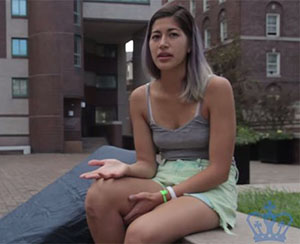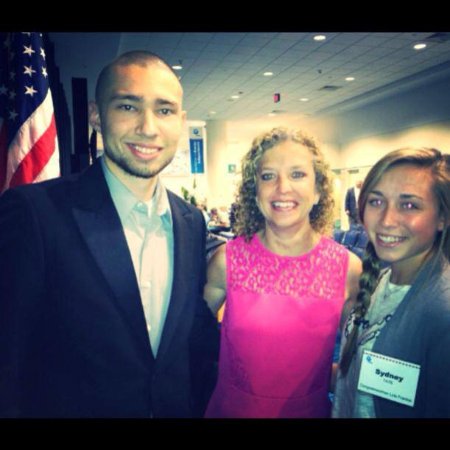
It’s great to see students who are part of the majority defend the rights of the minority – especially those who show healthy skepticism toward idols.
By doing so, Columbia University student Cameron Fegers has put a big fat target on his back.
He isn’t siding with Paul Nungesser, the exchange student accused of raping a fellow student, Emma Sulkowicz, who turned the encounter into a performance art project wherein she carries her mattress around campus and then complains about the media bugging her.
But Fegers writes in the Columbia Spectator that he’s tired of the “brazen political climate on campus” in which Sulkowicz supporters feel free to harass and shame those who don’t “believe Emma” or just don’t care, “giving a far-reaching platform to one person”:
These days, students are asked who they believe in the “Emma story” in exactly the same way as friends asking each other if they have seen an iconic movie like The Godfather. If you’ve seen and enjoyed it, you’ll scream in euphoria about its awesomeness, but if you haven’t, you blankly stare back, wondering why seeing such a movie is a prerequisite for gaining additional “cool points.”
Fegers is no right-wing ideologue – he’s a former executive board member of the College Democrats and currently sits on the Student Health Advisory Committee. He blogs at the Huffington Post and his LinkedIn profile pic shows him with the (embattled) head of the Democratic National Committee, for heaven’s sake.
Yet he sounds like the winning team at George Washington University’s campus debate this week on whether “liberals are stifling intellectual diversity on campus”:
Students may not know what they believe, because, once removed from the classroom, they aren’t given the space to believe anything outside the norm and can be disenfranchised by their peers from forming any opinion at all. The extent to which we actively drown out dissenting voices on this issue symbolizes a judgment call from the masses—that the opinions of those who don’t believe Emma are inferior and unworthy of consideration. Students are afraid to disagree with what is considered by the “perceived” majority to be a noble and just cause for fear that campus peers will categorize them as pro-rape. Students are afraid to stand up and ask, “why?” We will never know if the number of students with a different perspective outweighs the opinion of the “perceived” majority because enough student activists within the “perceived” majority have made it inappropriate and undesirable to criticize the merits of sexual violence activism.
Fegers is worried that Sulkowicz and Nungesser will continue trading public barbs “until the Cubs win another World Series,” marginalizing the bigger movement to stop sexual violence on campus:
[Sulkowicz] has become a larger-than-life international and campus figure. Some may say she is a hero, others a propagandist. I believe she has an important message that everyone should hear. But I am also very doubtful that time spent debating the truth of her story and allowing Paul a platform is constructive. In spite of their unintentionality, the media continues to polarize our campus to extreme perspectives based on a figurehead’s individual experience instead of on the merits and flaws of an internal campus movement.
We need to focus our discussions and energy on fostering a community dedicated to combating sexual violence. Encourage others and their ideas, however unpopular, that they may join the discussion to end sexual violence.
Well said, Cameron. Enjoy the “rape denialist” label.
Greg Piper is an assistant editor at The College Fix. (@GregPiper)
Like The College Fix on Facebook / Follow us on Twitter
IMAGE: YouTube screenshot, Cameron Fegers/LinkedIn
Like The College Fix on Facebook / Follow us on Twitter








Please join the conversation about our stories on Facebook, Twitter, Instagram, Reddit, MeWe, Rumble, Gab, Minds and Gettr.